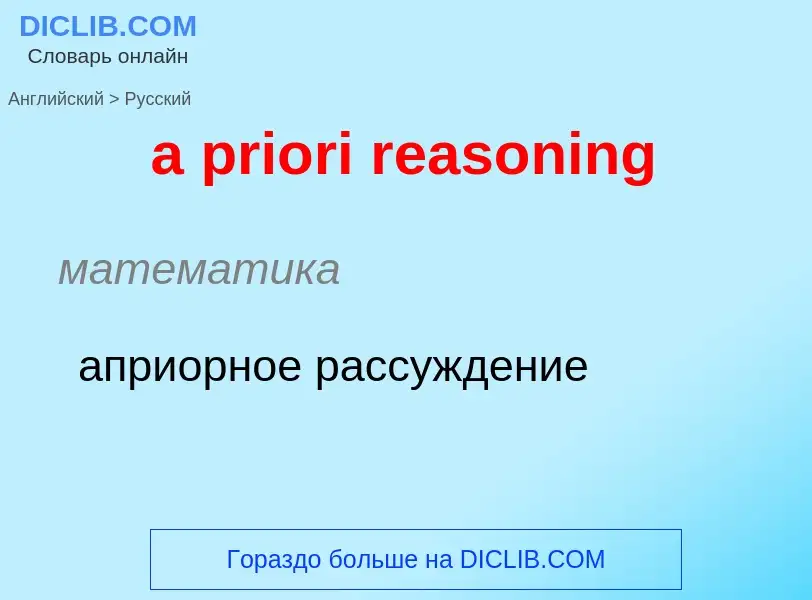Vertaling en analyse van woorden door kunstmatige intelligentie ChatGPT
Op deze pagina kunt u een gedetailleerde analyse krijgen van een woord of zin, geproduceerd met behulp van de beste kunstmatige intelligentietechnologie tot nu toe:
- hoe het woord wordt gebruikt
- gebruiksfrequentie
- het wordt vaker gebruikt in mondelinge of schriftelijke toespraken
- opties voor woordvertaling
- Gebruiksvoorbeelden (meerdere zinnen met vertaling)
- etymologie
a priori reasoning - vertaling naar russisch
математика
априорное рассуждение
Definitie
Wikipedia
A priori ("from the earlier") and a posteriori ("from the later") are Latin phrases used in philosophy to distinguish types of knowledge, justification, or argument by their reliance on empirical evidence or experience. A priori knowledge is independent from current experience (e.g., as part of a new study). Examples include mathematics, tautologies, and deduction from pure reason. A posteriori knowledge depends on empirical evidence. Examples include most fields of science and aspects of personal knowledge.
The terms originate from the analytic methods found in Organon, a collection of works by Aristotle. Prior analytics (a priori) is about deductive logic, which comes from definitions and first principles. Posterior analytics (a posteriori) is about inductive logic, which comes from observational evidence.
Both terms appear in Euclid's Elements and were popularized by Immanuel Kant's Critique of Pure Reason, an influential work in the history of philosophy. Both terms are primarily used as modifiers to the noun "knowledge" (i.e. "a priori knowledge"). A priori can be used to modify other nouns such as "truth". Philosophers may use apriority, apriorist, and aprioricity as nouns referring to the quality of being a priori.

